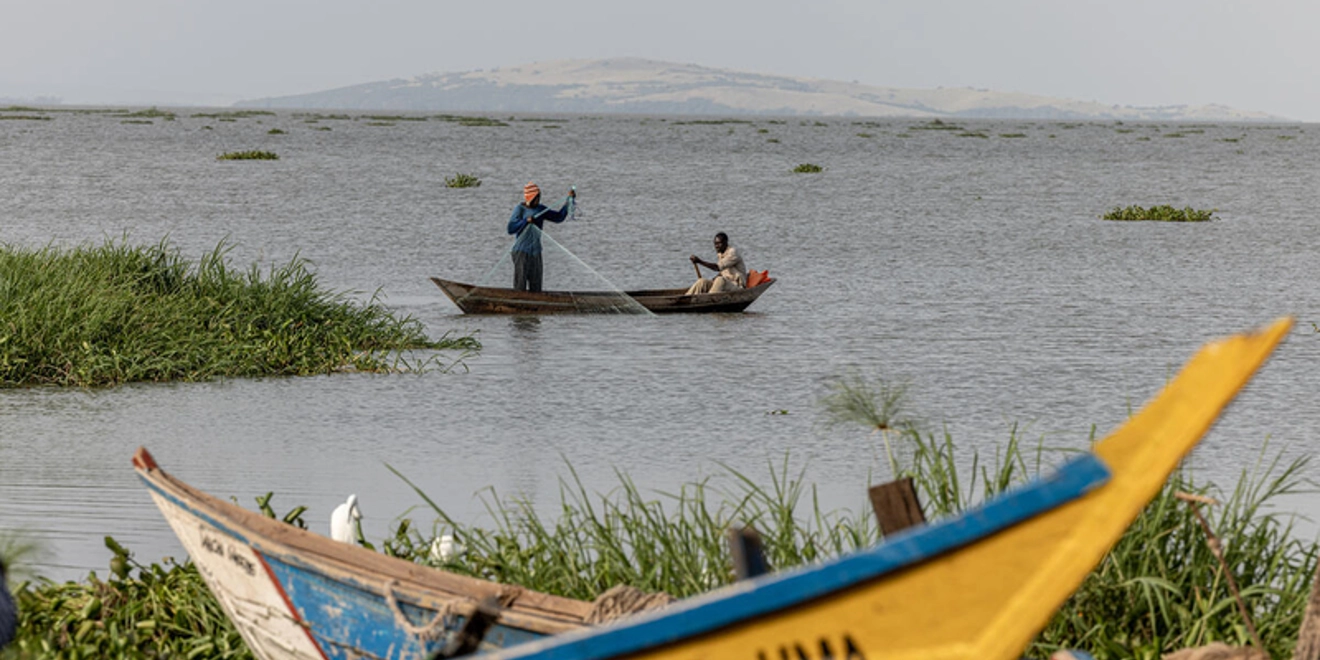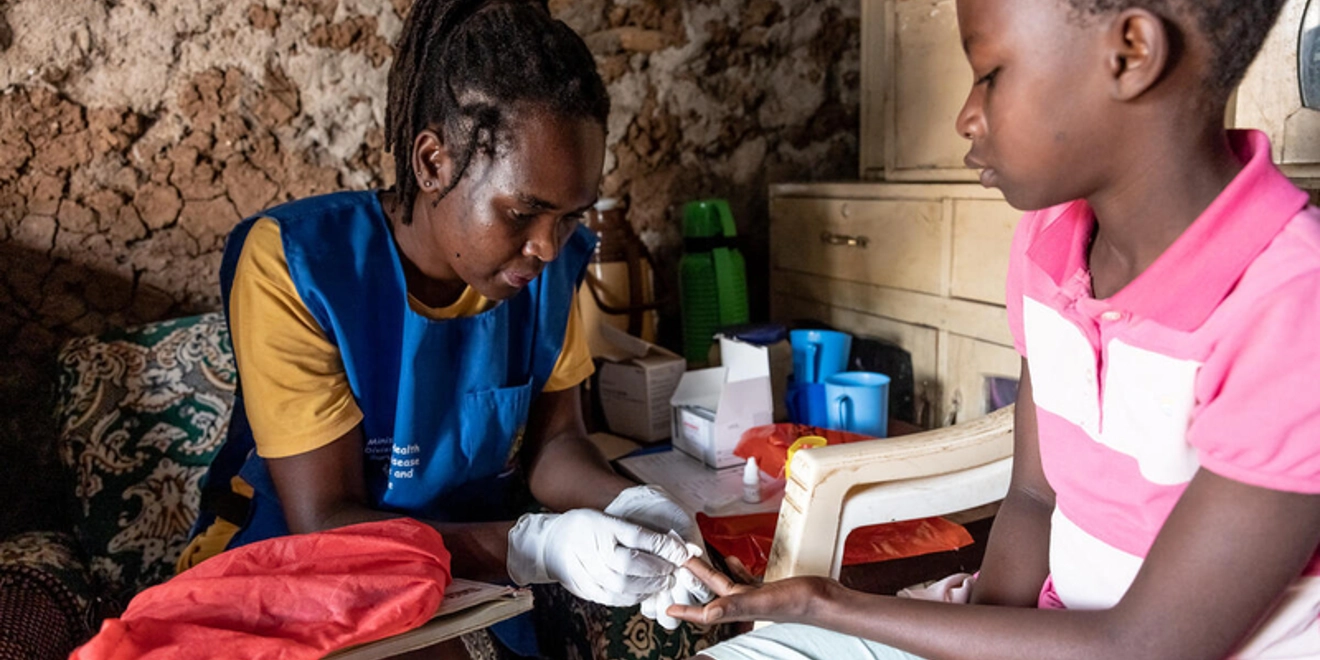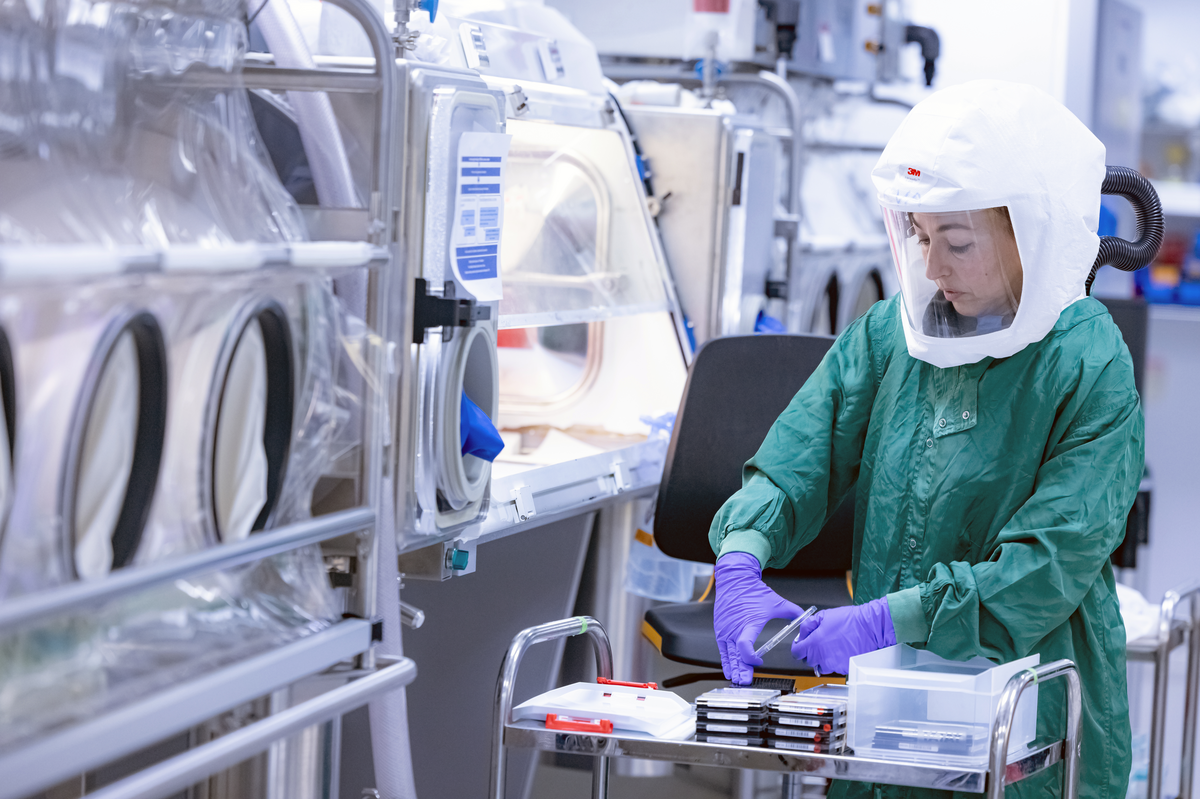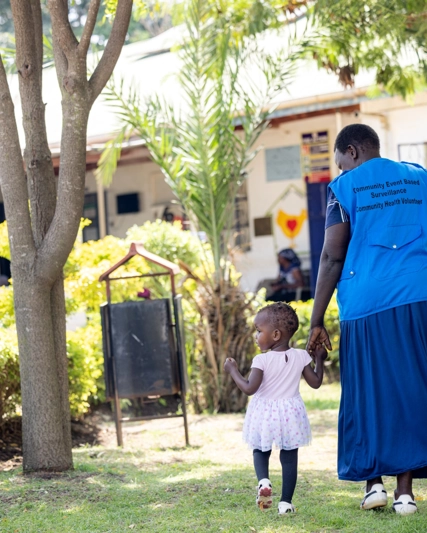Despite global efforts to change the course of high burden diseases like malaria and TB in lower income countries, progress has stalled. Here, GSK’s Chief Global Health Officer Thomas Breuer, MD, explains why, and what steps need to be taken to ensure more lives are saved from preventable infectious diseases.
Let me paint you a picture. Siaya is a county in western Kenya that sits on the shores of Lake Victoria. As one of the African Great Lakes, it is full of wildlife and acts as a lifeline for many people that live on its shores. It’s also an ideal breeding ground for mosquitoes that carry one of the most devastating diseases in sub-Saharan Africa – malaria. Nearly every minute, a child under five dies from malaria in places like Siaya, posing a real and constant threat to the communities of young families that live there.
Despite the dedication of health professionals supporting their communities, it is becoming increasingly difficult for people to access the healthcare and health education they need in lower income countries. The strain these preventable diseases are placing on already overstretched healthcare workers in these lower resource settings is huge, and there are several reasons for this.

Last year, the World Health Organization (WHO) and the World Bank reported that progress towards universal health coverage had slowed, a goal that promises people everywhere access to quality, affordable and accessible healthcare by 2030. If we’re to deliver real impact on human health I want us, the global health community, to look at how and why we are lagging behind – starting with the impact of climate change and antimicrobial resistance (AMR) on human health.
People in lower income countries are particularly vulnerable to the impact of climate change. Take malaria for example. Longer summers and warmer winters could extend the seasons typical for mosquitoes to live and breed, and evidence already exists that increasing temperatures expand the geographical areas that are suitable for mosquitoes. In fact, the WHO predicts that between 2030 and 2050, climate change will lead to an additional 250,000 deaths from malaria each year.
On top of climate change, antimicrobial resistance (AMR) is another major public health threat hindering global health progress. Antibiotics are becoming less effective to help treat diseases that are endemic in lower income countries. If these diseases aren’t being prevented in the first place, then the spread of infections amongst populations will further compound the AMR threat. The WHO ranks AMR as one of the top 10 threats to global public health and, if effective action isn’t taken, it has the potential to cause millions of deaths annually by 2050.
I’m also acutely aware of other obstacles to a patient’s healthcare journey in communities like Siaya. Whether that’s due to a lack of prevention, to gender inequalities creating barriers to diagnosis, or the rise of drug resistance, among other things.
Despite these challenges, I am buoyed by the progress that has been made.
We’ve seen some innovations come to fruition, such as the rollout of RTS,S – the world’s first malaria vaccine – followed by R21, which are now progressively being rolled out across Africa. We’ve delivered more than 1.2 bn vaccine doses against different pathogens to lower income countries through our partnership with Gavi, the Vaccine Alliance since 2010 to help prevent childhood illnesses. And even more recently, GSK has committed £45m to the Fleming Institute to support a global, multidisciplinary approach to tackling AMR. We’ve also begun work on next generation malaria vaccines.
However, our work is far from over. We’re at a critical turning point as we head towards 2030, and we – the global health community – must mobilise our resources and put our feet on the accelerator. But how?

At GSK, our approach to driving global health progress is three-fold. Firstly, in 2022 we committed to investing £1 billion in global health R&D over a 10-year period, focusing on malaria, TB, AMR, NTDs, HIV and other threats. To do this, we work with organisations who bring diverse skills, from early research to product introductions, to ensure that our innovations are fit for purpose and achieve maximum health impact at scale.
Secondly, we’re focused on ensuring sustainable access to our licensed vaccines and medicines, and bringing new treatments to market such as tafenoquine, a radical cure for vivax malaria, in endemic countries. To ensure long-term supply of our products, we work in partnerships. For example, I was in India recently to visit our partner, Bharat Biotech, who will be taking over the baton from GSK, producing the RTS,S vaccine to help make it more affordable and accessible for those that need it.
Thirdly, we’ve designed and implemented health system strengthening programmes to help improve the prevention, diagnosis and treatment of infectious diseases. If we can work towards increasing vaccination rates among children through initiatives like our zero dose partnership with Save the Children in Ethiopia and Nigeria, for example, we can really make a difference.
All our efforts are needed to speed up global health progress, and we all have a role to play. If we’re truly to achieve good health for all and end the burden of major infectious diseases, we have to work together to understand, and react to, the ever-changing landscape.
Together, we must adapt more quickly than ever before.





